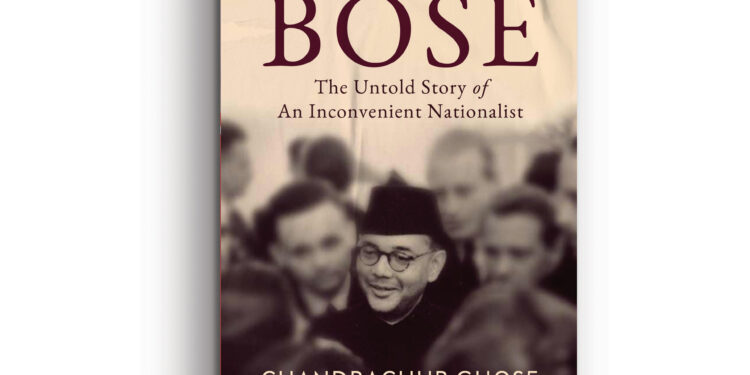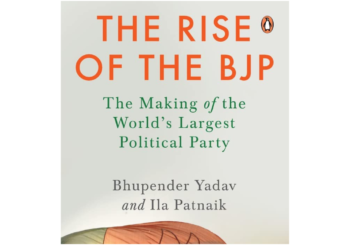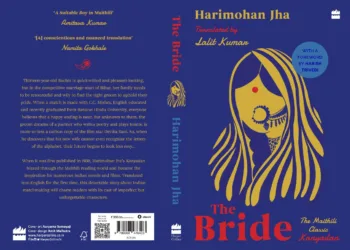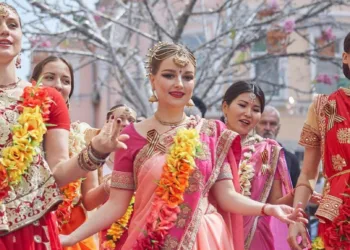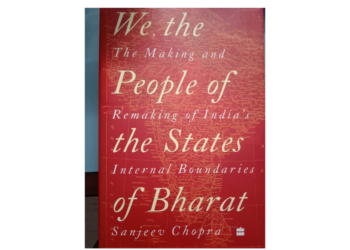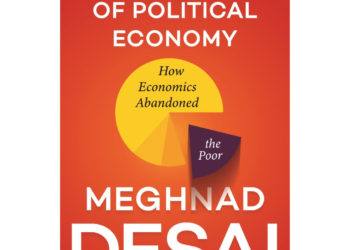BY PARSA VENKATESHWAR RAO JR
A candid account of a tumultuous personal and political life that reveals an era when leaders clashed with one another without reserve and yet retained mutual respect
Was there need for another book on the life of Subhas Chandra Bose? Do we not already know all that could be known about him? And a suspicion also arises at the beginning of the book about whether it is one of those revisionist biographies where Bose is made to fit in with the views and prejudices of our own times. This doubt arises because author Chandrachur Ghose writes about the spiritual and religious ardour of Subhas Chandra Bose as a teenager and as a young man. But then we realise that for a young Bengali
growing up in the early years of the 20th century, with Ramakrishna Paramhansa, Swami Vivekananda and Aurobindo Ghose looming large in the background in Bengal, it was inevitable for the young Bose to have spiritual aspirations, which he pursued with zeal along with his burning sense of nationalism. Of course, the spiritual aspect of his personality takes a backseat during the years of political struggle in the 1920s and 1930s, when Bose became a national hero. But the author has done well to document this
religious and spiritual aspect of Bose’s life. And it can be inferred that his sense of idealism, his purity of purpose, which Mahatma Gandhi recognised at the very moment when the two were at loggerheads in the late 1930s, is indeed rooted in Bose’s spiritual turn of mind. And in the Vivekananda tradition, spirituality and service of the poor were intertwined for Bose.
Ghose quotes Bose writing about his inner life in his autobiography, The Indian Pilgrim: “I was barely fifteen when Vivekananda entered my life. Then there followed a revolution
within and everything was turned upside down.” So, it was not surprising that Bose went off on a tour of north India in the summer of 1914; joining his friend, Hemanta Kumar Sarkar at Haridwar, they travelled to Rishikesh, Delhi, Mathura, Vrindavan, Agra, Varanasi, Bodh Gaya, and Gaya. Bose did not inform anyone at home and the parents were distraught. Bose recalled in his autobiography that when he returned, “She started crying on seeing me and could only say, ‘You were born to ensure my death.’ I kept smiling in my mind. Then I met father, embracing me after I touched his feet, he took me towards his room and broke into tears halfway down.” The author argues that during his years in
Presidency College in Calcutta, Bose met many of the young revolutionaries and though they wanted to induct him into their group he resisted because he was under the influence of Vivekananda and believed that the salvation of the country lay in national reconstruction.
Then we see the dramatic change in Bose, who decides to join politics after he passes the prestigious Indian Civil Service (ICS) examination in 1921 and returns to India. On his journey back, Rabindranath Tagore was travelling on the same steamer, and the author rues the fact that there is no record of what the world renowned poet and the budding patriot said to each other. In July 1921, after landing in Bombay, Bose meets Mahatma Gandhi, who had by then assumed the leadership of the Congress and had begun his non-cooperation movement. Bose recognised the greatness of Gandhi as a leader though he did not agree with the leader! It was a friendly but intense encounter. “As Subhas, clothed in western dress, walked into Mani Bhavan with its Swadeshi ambience, he could not but apologise. The ever-affable Gandhi, probably amused at the awkwardness of the visitor who was almost three decades younger than him, eased him with a hearty laugh and started responding to his barrage of questions.” Gandhi asked Bose to work
under C.R. Das, which Bose had already decided to. Bose found his true political mentor in Das. Bose recalls: “During the course of our conversation I began to feel that here was a man who knew what he was about…By the time our conversation came to an end my mind was made up. I felt that I had found a leader and I meant to follow him.”
The author provides a very clear portrait of Congress politics in Bengal. There was a Gandhi faction opposed to Das, and the same faction opposed Bose in the next decade. And there were the moderates, who were in and out of the Congress, and they too did not like the politics of Das. Like Bose later, Das was defeated in the Congress when the moderates and the Gandhi faction defeated his proposal to join the local council, state legislatures and the Central Assembly. But Das was able to have his way when he formed the Swaraj Party within the Congress in 1923 and made successful inroads into the elected bodies. Another cardinal point of Das’ politics was the unity of Hindus and Muslims in Bengal and in India. Das recognised the importance of communal amity in his own way, and this became an article of faith for Bose in the 1930s. The other aspect of Das’ politics was that he broadened the base of the Congress by bringing in the workers and their trade unions, and the farmers. The third aspect was roping in the Bengal revolutionaries and convincing them to give up violence and be part of the Congress. One of the important aspects of this biography is the importance of Das’ leadership in Bengal and in the Congress, and how this moulded the politics of Bose.
Ghose adopts a radical position as a biographer when he speculates in the final chapters about the role of Bose had he returned at the time of independence. He says that Bose would have wanted the Azad Hind Fauj to be made the Indian army, and disbanded the army nurtured by the British, and he would not have agreed to a British general heading the army at the time of independence. And he argues well about the advantage the Congress derived from the Indian National Army (INA) trials in the Red Fort in 1946. The fact that the INA comprised people of all communities and castes fighting together became a shining example for the Congress to reject the arguments of the Muslim League and for the former to argue for secularism. And the most unconventional chapter in this Bose biography is about Bose’s marriage, which he did not make public. The author finds this a
fault, and also notes the irony that a man who declared his intention to remain celibate should have fallen for an Austrian woman! And he also mentions the fact that Emilie Schenkl is not consistent in her later recall about when they were married. It seems to be the case that Bose married Emilie in 1937 before he returned to India after a three-year convalescence in Europe. And he quoted Dilip Kumar Roy’s and Nirad C. Chaudhuri’s surprise and even disbelief that Bose married at all! And Ghose is also disapproving about the silence maintained by the Bose family even after they came to know of his marriage.
@Penguin


